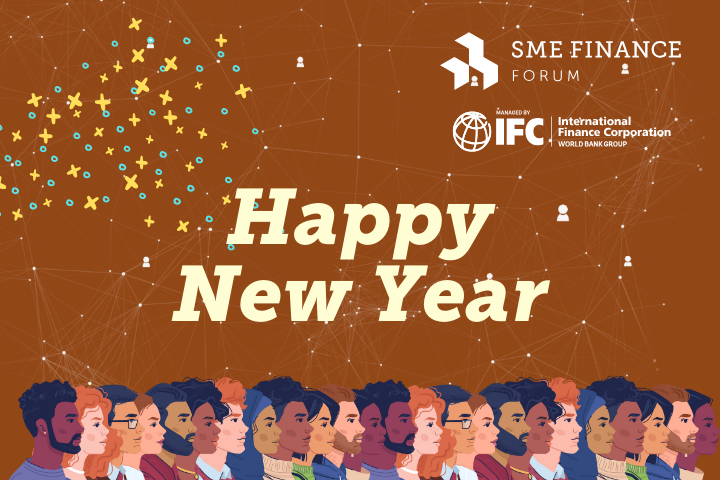Blog
Data and AI driving diversity in SME Lending

Summary of our webinar on Data and AI driving diversity in SME Lending.
A recording of the session is available here.
A deck is available for Members of the SME Finance Forum on our Member Portal
On April 19, 2023 the SME Finance Forum and Uplinq co-hosted a webinar on the topic of Data and AI driving diversity in SME lending. This topic explored the challenges faced by SMEs in getting access to financing and the lenders’ inability to effectively assess risk, including for those traditionally excluded and marginalised. A number of approaches and solutions were discussed based on the field work that Access Bank, Uplinq, Women’s World Banking and EY are enabling globally. The following is a summary of the webinar discussions.
Two thirds of jobs are created by SMEs and they contribute approximately 45% of GDP. Despite that, only 3% of banks' balance sheets are SME loans and even less, about 1%, are loans to women owned enterprises / women entrepreneurs (Source: US SBA). These numbers are more pronounced in developing and emerging markets. One of the key reasons behind this mismatch in economic activity and a bank’s balance sheet is information asymmetry about SMEs and the lack of risk assessment tools. Bankers use data much the same way they used it 30 years ago for credit risk assessment. This legacy thought process has created an enormous credit gap of $1 Trillion, as per World Bank.
Looking at a narrow set of data will continue to result in suboptimal decisions where a majority of SME applicants either get declined or only approved for a partial amount at an exorbitant interest rate. Lenders need to understand the economic context and translate that into an economic outcome to assess an SME’s ability to pay. This is where alternative data (macro-economy, micro-economy, regional and local market data) comes into play. But having data is not enough. There is a need for expertise around curating relevant and authoritative data sources in an operationally scalable way. More importantly, there is a need for building regulatory compliant AI models with the right objective functions. If done properly, this can really help drive inclusion by enabling the flow of money to those who have been traditionally "excluded". Lenders need to be cognizant of the fact that AI is not the problem. It is a failure of identifying the objective functions which is a problem.
An often cited issue around using AI is alignment to the model risk management principles especially when it comes to bias. One of the ways to remove the model bias is to not oversimplify the objective function. For example, understanding the community connectedness of a business in a model could be a strong predictor of risk. A model that incorporates assets that do not appear on the balance sheet plays a critical role in defining business success or failure and will be more inclusive towards protected classes, minorities, women and other marginalised populations. AI can be leveraged to design models that take into account language, cultural, gender and other variances. Another important factor often ignored is the resilience and resourcefulness of an entrepreneur. Looking at indicators of resilience of entrepreneurs even when credit behaviour is not available can be one of the best predictors of future success.
Advancements in digital and analytical technology means that lenders have tools at their disposal beyond traditional data. For example, leveraging NLP (natural language processing) to extract insights from underwriter’s notes or using image processing to extract information from photographs to train loan officers against unconscious biases has proven to be beneficial in getting loans to women owned SMEs in Colombia and India.
In conclusion, the right set of objectives coupled with reliable alternative data and the use of advanced technological tools can produce dramatic positive outcomes. The result in objectivity in decision making by removing subjective biases that exist today. It is time for all the players in the lending ecosystem to open their minds to possibilities leveraging data and AI to drive diversity and inclusion in SME lending.
About the presenters
- Elaine MacEachern, Sr. Financial Sector Specialist - World Bank Group
- Patrick Reily, CEO - Uplinq Financial Technologies
- Mario Schlener, Leader Financial Services Risk Management (FSRM) Practice and Enterprise Risk Strategy Canada and Global FS Risk Technology/Alliance/Innovation Lead - Ernst & Young
- Ayo Olojede, Group Head, Emerging Businesses - Access Bank
- Mehi Mirpourian, Data Science Manager - Women's World Banking








